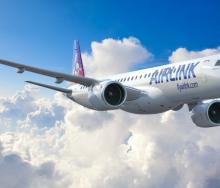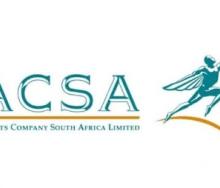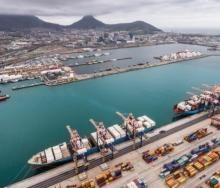Most CEOs believe global economic growth will decline over the next 12 months, PwC’s latest Annual Global CEO Survey has found.
The survey, which polled 4 410 CEOs in 105 countries and territories, revealed that 73% of CEOs were pessimistic about growth prospects. The poll was conducted during October and November 2022. PWC noted in its report that the bleak outlook was the most pessimistic by CEOs regarding global economic growth in just over a decade, a departure from the optimistic outlooks of 2021 and 2022 when more than two-thirds (76% and 77% respectively) thought economic growth would improve.
CEOs in sub-Saharan Africa expressed similar sentiments to their counterparts globally. These respondents face local and regional factors impacting their outlooks, such as load-shedding, currency depreciation and inflation, and specific skills requirements and growth opportunities.
In addition to a challenging environment, nearly 40% of CEOs think their organisations will not be economically viable in a decade if they continue on their current path. This view was expressed across a range of sectors, including telecommunications (46%), manufacturing (43%), healthcare (42%) and technology (41%). CEO confidence in their own companies’ growth prospects has also declined dramatically since last year (-26%), the biggest drop since the 2008-2009 financial crisis when a 58% decline was recorded.
More than half of CEOs (56%) believe changing customer demand/preferences will impact profitability, followed by changes in regulation (53%), labour/skills shortages (52%), and technology disruptions (49%).
Inflation (40%) and macroeconomic volatility (31%) lead the risks weighing on CEOs in the short term over the next 12 months, and over the next five years. Some 25% of CEOs also feel financially exposed to geopolitical conflict risks, while cyber risks (20%) and climate change (14%) follow.
The war in Ukraine and growing concern about geopolitical flashpoints in other parts of the world have caused CEOs to rethink aspects of their business models, with almost half the respondents that are exposed to geopolitical conflict integrating a wider range of disruptions into corporate operating models - either by increasing investments in cybersecurity or data privacy (48%), adjusting supply chains (46%), re-evaluating market presence or expanding into new markets (46%), or diversifying their product/service offering (41%).
CEOs are also looking to cut costs and spur revenue growth. Fifty-two per cent of CEOs report reducing operating costs, while 51% report raising prices and 48% diversifying product and service offerings. However, more than half (60%) say they do not plan to reduce the size of their workforce in the next 12 months. Some 80% indicate they do not plan to reduce staff remuneration.
PwC Global chairman, Bob Moritz, said the volatile economy, decades-high inflation, and geopolitical conflict had contributed to the high level of pessimism.
“CEOs globally are consequently re-evaluating their operating models and cutting costs, yet despite these pressures, they are continuing to put their people front and centre as they look to retain talent in the wake of the ‘Great Resignation’. The world continues to change at a relentless pace, and the risks facing organisations, people, and the planet, will only continue to rise. If organisations are not only to thrive but survive the next few years, they must carefully balance the dual imperative of mitigating short-term risks and operational demands with long-term outcomes, as businesses that don’t transform won’t be viable,” Moritz said.
While climate risk did not feature as prominently as a short-term risk relative to other global risks, CEOs still view it as impacting their cost profiles (50%), supply chains (42%) and physical assets (24%) from a moderate to very large extent. Recognising the impact of climate change over the long term, the majority of CEOs have already implemented, or are busy implementing, initiatives to reduce their firms’ emissions (65%), while innovating new, climate-friendly products and processes (61%), or developing data-driven, enterprise-level strategies to mitigate climate risks (58%).
Despite an increasing number of countries now having some form of carbon pricing, 54% of CEOs do not plan to apply an internal price on carbon in decision-making, and 36% do not plan to implement initiatives to protect their physical assets and/or workforce from the impact of climate risk.
Technologically, 76% of organisations say they are investing in automating processes and systems, implementing systems to upskill workforces in priority areas (72%), and deploying technology such as the cloud, Artificial Intelligence and other advanced technology (69%).













